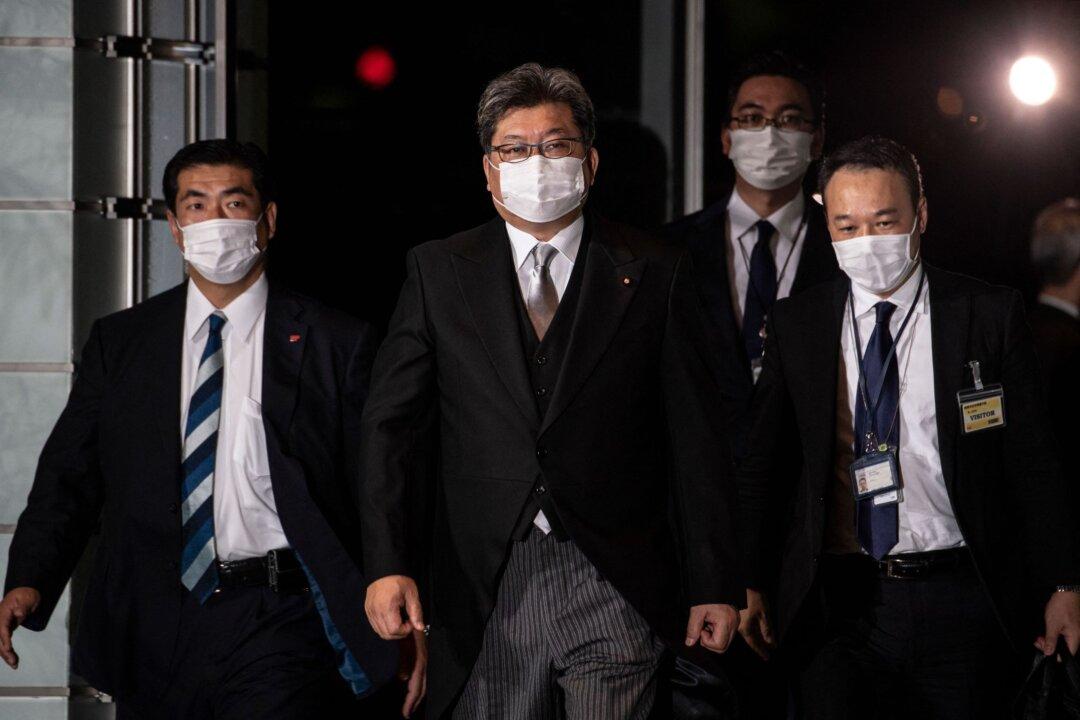Japan and the United States agreed Wednesday to deepen cooperation in semiconductor supply chains and energy security amid the global supply constraints fueled by the ongoing Russia–Ukraine war.
Japan’s Industry Minister Hagiuda Koichi met with U.S. Commerce Secretary Gina Raimondo in Washington on Wednesday to discuss Japan–U.S. partnership in semiconductors, export controls, digital economy, as well as trade and investment.





